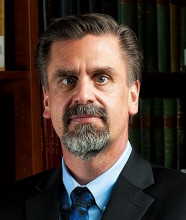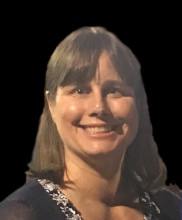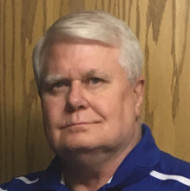 MESA, Arizona – Sept. 17, 2019 -- Mesa Community College administration of justice adjunct faculty Mark Bond, and two former adjunct faculty, Michael L. Beshears and Michelle L. Beshears, are co-authors of Improving Police Social Media Use Practices that appears in the September 2019 issue of International Journal of Social Science Studies, Volume 7, No. 5. The article examines how improved police social media practices may aid in crime solving and serve as a gateway to building stronger community relations.
MESA, Arizona – Sept. 17, 2019 -- Mesa Community College administration of justice adjunct faculty Mark Bond, and two former adjunct faculty, Michael L. Beshears and Michelle L. Beshears, are co-authors of Improving Police Social Media Use Practices that appears in the September 2019 issue of International Journal of Social Science Studies, Volume 7, No. 5. The article examines how improved police social media practices may aid in crime solving and serve as a gateway to building stronger community relations.
The idea for the study was generated by the gap in the scholarly literature containing police social media use and the lack of studies on the perceptions and experiences on how the public felt about the usefulness of police social media sites. Bond said this study adds to the missing scholarly literature on police social media use.
The authors pooled information from multiple resources including a Pew Research Center study by Aaron Smith and Monica Anderson on social media use.
 “We looked into a number of themes, including crime solving, asynchronous versus synchronous engagement, humanistic branding and more,” Bond said. “It is reasonable to propose that proper police use of social media platforms may create opportunities for the exchange of information between the police and community residents.”
“We looked into a number of themes, including crime solving, asynchronous versus synchronous engagement, humanistic branding and more,” Bond said. “It is reasonable to propose that proper police use of social media platforms may create opportunities for the exchange of information between the police and community residents.”
The authors concluded there is a need for future research, including demographics such as age and technology acceptance, plus further investigation of the most effective social media platforms for police to use.
“My hope is that this will provide important insight into how social media can open lines of communication between the community and law enforcement,” Bond said. “My students at MCC benefit from the knowledge acquired in this article. I encourage classroom discussion about the topics brought up in the article.”
The article may be found online at http://redfame.com/journal/index.php/ijsss/article/view/4449.
 The International Journal of Social Science Studies is published by the Redfame Publishing, an academic publisher specializing in peer-reviewed, open access journals for a wide range of subject areas, including economics, business, education, social sciences, humanities, and sciences.
The International Journal of Social Science Studies is published by the Redfame Publishing, an academic publisher specializing in peer-reviewed, open access journals for a wide range of subject areas, including economics, business, education, social sciences, humanities, and sciences.
# # #
Media contact: Dawn Zimmer, 480-461-7892 or dawn.zimmer@mesacc.edu
Mesa Community College is nationally recognized as an Aspen Prize Top 150 U.S. Community College and is known for service learning, career and technical programs, civic engagement and innovative approaches to education. The college serves as a resource for career readiness, transfer education, workforce development and lifelong learning. Host to more than 30,000 students annually, MCC offers degree and certificate programs online, at its two campuses, the Mesa Downtown Center and additional locations. Through the implementation of Guided Pathways with Integrated Support Services, MCC is transforming ways it champions student success; college completion, university transfer and career attainment for all students. MCC is a Hispanic Serving Institution. The diverse student body includes more than 400 international students representing over 60 countries. Award-winning faculty are dedicated to student success, providing the education and training to empower MCC students to compete locally and globally. Located in the East Valley of Phoenix, Arizona, MCC is one of the 10 colleges in the Maricopa County Community College District. Learn more at mesacc.edu.
Mesa Community College is accredited by the Higher Learning Commission (HLC).
The Maricopa County Community College District (MCCCD) is an EEO/AA institution and an equal opportunity employer of protected veterans and individuals with disabilities. All qualified applicants will receive consideration for employment without regard to race, color, religion, sex, sexual orientation, gender identity, age, or national origin. A lack of English language skills will not be a barrier to admission and participation in the career and technical education programs of the District. MCCCD does not discriminate on the basis of race, color, national origin, sex, disability or age in its programs or activities. For Title IX/504 concerns, call the following number to reach the appointed coordinator: (480) 731-8499. For additional information, as well as a listing of all coordinators within the Maricopa College system, visit www.maricopa.edu/non-discrimination.

